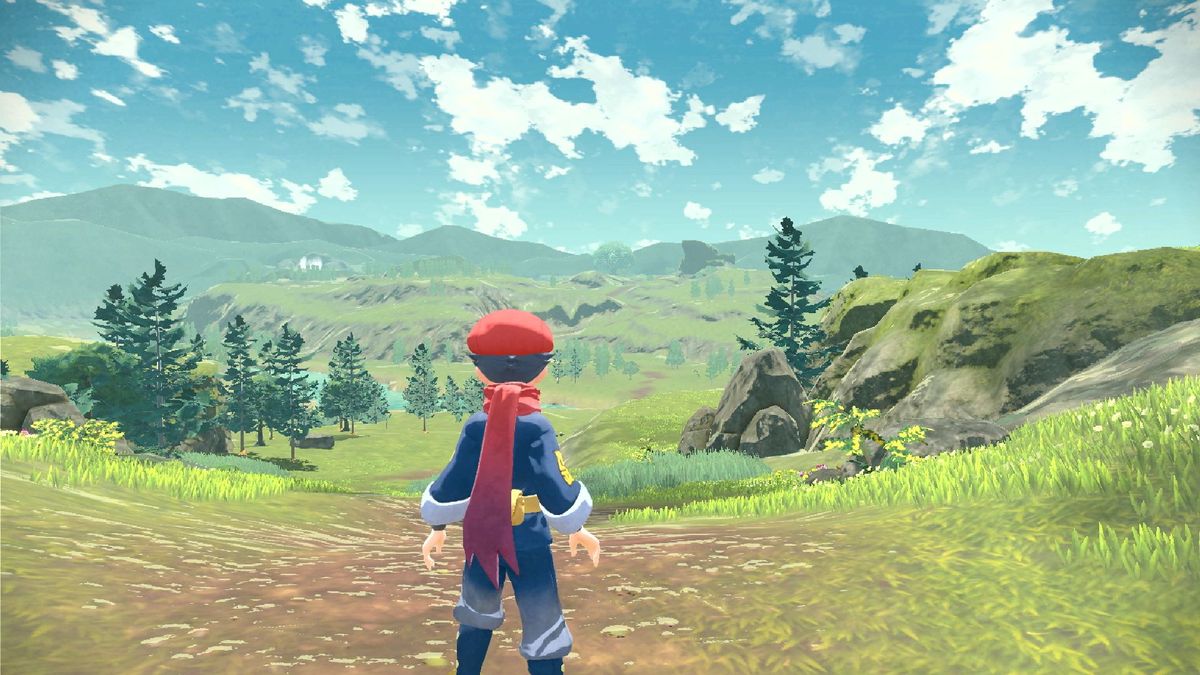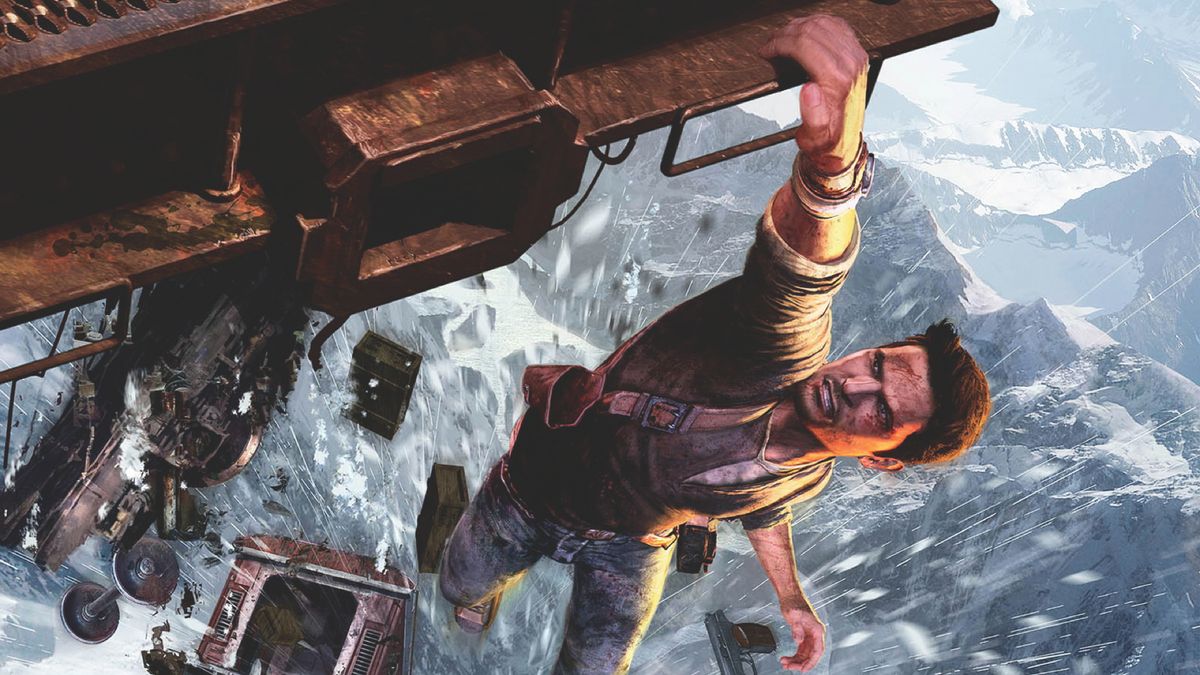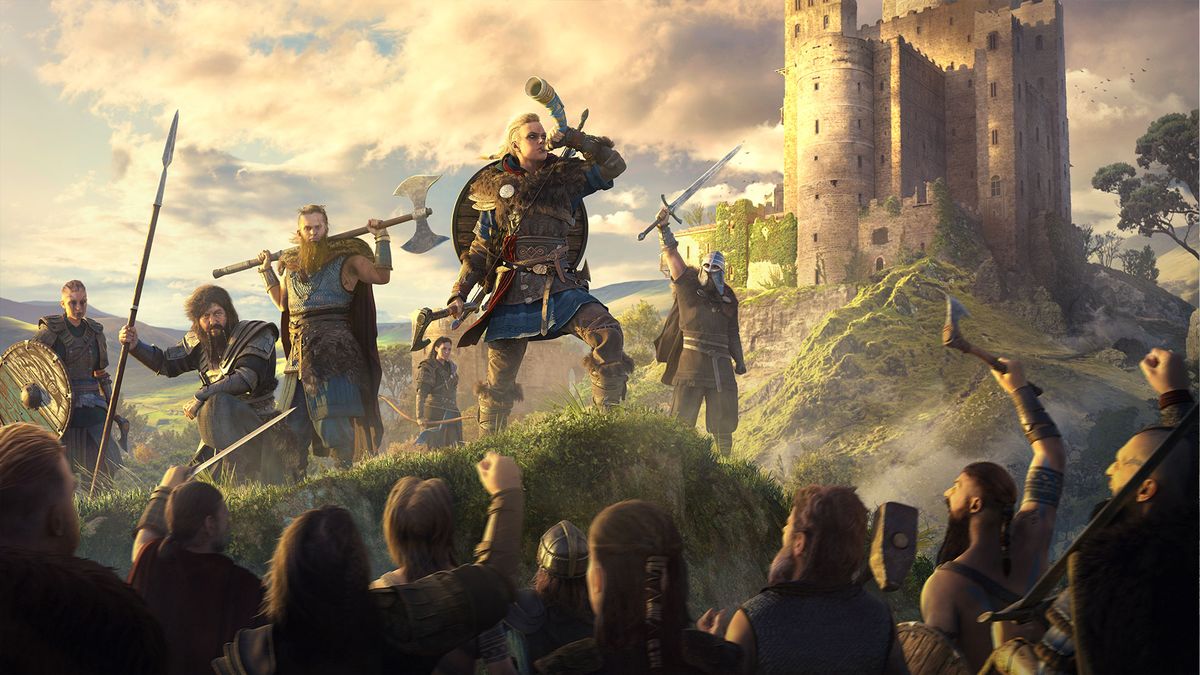

(opens in new tab)
Si Spurrier is one of the most consistently interesting, and versatile, comic authors working today. A 2000AD veteran, he’s also made science cool (And frankly demented) again in the Marvel universe with X-Club and is ending the world an agonisingly slow, incredibly horrific week at a time in the superb Crossed web comic, Wish You Were Here , for Avatar. I caught up to him to talk about his work, his plans and what terrifies him.
Let’s talk about Extermination first of all. What influenced the idea?
“At the risk of sucking all the drama out of a potential anecdote, Boom! brought the idea to me. Sorry. Bit more to it than that, thank goodness. Matt Gagnon had conceived of this story in which – as he put it – Batman and Doctor Doom have to team-up to save the world from an alien occupation. Which is a fun and oh-so-very evocative idea in itself, and came complete with character designs for our main guys. Me being me, I couldn’t help but start sticking my oar in and making tweaks, and the thing, which quickly emerged as most exciting, was to play with was the disparity between ‘classic’ superhero stories, and this radically different, grim, adapt-or-perish wasteland in the aftermath of an extinction-level event. I’ve always been affectionately cynical about certain spandex characters – it strikes me that readers have for decades been cheerfully suspending a lot of disbelief by choosing to accept that ‘get powers/gadgets = fight-crime’ is a rational position to adopt – and I liked the idea of seeing that simple, moral-two-tone world through the lens of something far darker and more brutal. It’s ‘Mad Max -meets-superheroics’, basically. Flashbacks from a time of horror to a time of bright, silly simplicity.
“Plenty more going on as well, of course. It was important to me that the ‘alien threat’ be truly unique and truly alien, and the plot is a lot twistier than a lot of people will be expecting a straightforward survival story to be. But yeah, at its core the idea is all about taking notions of ‘heroism’ and ‘villainy’, in the flashy vaudeville spandex sense, and injecting them into a world where such concepts have no meaning at all.”
There are a couple of different culture clashes in there, with hero and villain, and American and Brit, both powering the relationship between Nox and Red Reaper. Do you think the attitudes to disaster differ on either side of the Atlantic?
“I’m not sure about attitudes to disaster, but – generalising wildly – I do think there’s a disparity in levels of cynicism and moral aspiration. In the UK the word ‘hero’ takes on a slightly icky aspect: we find it difficult to believe someone could be genuinely selfless and good without some selfish ulterior motive, so we’re automatically suspicious of these posturing boy scout weirdoes in their capes and costumes. That tends to manifest – in Brit-written spandex comics – as deconstructionist, sarcastic, satirical stuff, and hence often the villains (whose motivations are, at the very least, slightly simpler) end up getting the lion’s share of the wit, intelligence and One-Liners.
“That’s a recipe Extermination appears – at first – to adhere to. But like I said: things are a lot twistier than they seem, and both these guys have some surprising hidden depths.”

(opens in new tab)
Inevitably, superhero fiction is viewed as drawing from everything that’s gone before it. Who are the influences on Nox and Reaper?
“The starting position was, simply, that they were analogues of Batman and Doctor Doom. One’s a moral fulcrum: intransigent in his beliefs, full of moral conviction, haunting the urban night, refusing to kill his opponents, etc. The other’s an aristocratic megalomaniac science-genius. As the story begins both characters wear those influences on their sleeves, but it’s worth mentioning that even before I started telling the story a few other bits and bobs snuck into the mix: Reaper borrowed a dose of smarm and bombast from Doctor Nemesis (who I’d just finished writing in the X-Club ), while Nox is far more of a bundle of simmering rage than Batman ever was. In fact, Reaper enjoys testing his limits throughout episode one. I decided pretty quickly that the “non-killer decides to kill” character arc was a bit too obvious, so I had fun playing-up to expectations only to get it out the way nice and quickly in issue one. It’s what happens next that really matters.
“Aaaand, as I keep slyly suggesting, there’s a lot more going on behind those masks than just ‘Batman vs Doctor Doom’. These guys have secrets, agendas, loves and losses. Even at their most united – and by the end of episode two they’ve jointly hit upon a f**king massive goal – their reasons for pursuing the same end aren’t ever as synchronised as they seem.”
You drop fascinating hints about the invaders in issue one. Will we get to find out more about them?
“Yep, certainly will. Little by little. In fact, a lot of the flashbacks in episode two are concerned with the nature of ‘the alien invasion’ itself. Which (again: because I’m me) isn’t really an invasion at all. And these things aren’t really aliens, in the they-came-from-outer-space sense.
“Sorry. Being a cryptic bastard, here.”
How long is the book? Do you have an endpoint planned?
“There is a planned endpoint, yeah. I know precisely how this story – or, rather, this part of the story – ends. But I’ve been careful to build-in the means to tell subsequent/related tales. As for how long it’ll last: my lips, alas, are sealed.”
Any story is, to some extent, influenced by the time it’s written in, and I was wondering whether you think there’s a shift towards grimmer, bleaker fiction in the second decade of the century? As you say, the world Nox and Reaper find themselves in is incredibly grim and very far from where they started.
“Ooof, tough one. I think… well, look, let’s stick to the subject of superheroism in particular, otherwise we’re getting into all kinds of complex ground. It’s probably fair to guess that there’s a sort of tonal waveform… Over the past couple of decades we’ve wibbled back and forth between – on the one hand – ultra-gritty, ultra-nasty, ultra-violent horribleness, and – on the other – earnest spangly ‘it’s okay to be a hero’ boyscouty stuff. Neither is any better or worse than the other, particularly, but it is interesting how things so often oscillate. That said, even when one trend or the other is at its apogee there are always concessions to the other side of the coin available. So… I honestly don’t know how Extermination relates to that spectrum. Frankly the aim was to confound it altogether: switch back and forth between the shiny silliness and the grim horribleness, and let the simple fact of the contrast say things about both.
“If I had to choose, I’d say I come down on the cynical side rather than the shiny aspirational side, but ‘Superheroes! Get! Dark!’ shouldn’t automatically imply gratuitousness.”
Yes, Nox’s unhinged little smile in that final panel did seem to suggest something very nasty starting to happen. There’s almost a sense of the world being a blank canvas now and Nox realising just how much freedom he has. Did you find yourself changing how you wrote Nox in particular as the book’s continued?
“Nox’s arc was locked-in from the start, so – whereas he does change considerably – it’s not as though he ran off and started writing the story himself. I just wanted to get the whole ‘will he kill?’ thing out the way nice and quickly, so it wasn’t hanging over. The things we find out about him – and Reaper – in the aftermath of that first step are far, far more interesting.”
Is there a scene you’ve written that’s disturbed you?
“Not per se . Now that episode two’s out in the world I can discreetly mention the grisly thing our heroes find down in the tunnels of Kass’s camp. It didn’t disturb me to be describing that scene (hey, I’m a Crossed writer – it takes more than that), but I got a little bit freaked by how natural and obvious it felt to adopt Red Reaper’s attitude to the whole thing: ‘This is the best use of this resource .’”
More on Crossed , X-Club and Spurrier’s novels on the next page…
You’re writing Wish You Were Here , the Crossed webcomic Avatar is putting out. How did that come about?
“Warren Ellis introduced me to William, the Avatar CEO, a few years back. We got along very well. I pitched a few ideas, he picked several, off we went. I’ve actually got several exciting projects – in various stages of completion and progress – waiting to emerge from William’s capacious drawers. One of them’s a webcomic called Disenchanted , which was originally intended to run directly after Warren’s Freakangels ended. But in the run-up Garth’s first series of Crossed became this phenomenally successful thing, and William decided he’d like to do a webcomic set in that world too.”
There’s a lot of discussion as to whether or not the lead in the book is a fictional version of you. Are there elements of you to Shaky?
“Absolutely, yeah. I’m totally honest and very Zen about that. He’s not quite me, but he’s near enough that it makes very little difference. My philosophy in approaching the story was very simple: I wanted it to be far more than just gratuitous rapey horror, and the best way I could see to do so was to imagine how I’d respond to being dumped into this awful, terrifying world. I wanted to broadcast an honest, visceral reaction to all this icky shit going-on, so it wasn’t too much of a leap to literally put myself in that position. I didn’t want it to get too wanky and metafictional so I’ve steered clear of too much pretentious nonsense, but it has thrown up some very interesting story threads.
“For instance: as a writer I tend to define my self-worth according to how people respond to my work. Pathetic but true. But for our poor, long-suffering Shaky there is no audience, nobody left to care about his work, and far grander necessities than spinning words into a pretty order. He’s essentially useless. And yet on the same island is an artist who continues to paint just to please herself. So there’s this whole can of worms to be dumped out, all about what true value different personality traits hold, how people validate themselves, whether there’s any room in a bare-bones world for things which aren’t about simple survival. The best part of it all is – because I deliberately made the choice to plan story-arcs very, very, very loosely – I’m never entirely sure how things are going to pan out. I’ve ended up surprising myself more than once.”
Crossed is an interesting, and deeply disturbing, universe. Were you given freedom to carve your own corner of it or do you have to work within strict guidelines?
“Garth put together a bible for the world, but it’s not remotely restrictive. The thing to remember is that the Crossed are simply human beings with all their inhibitions and masks-of-civilisation peeled off. There’s no fakey societal morality, no do-unto-others – there’s just people given license to have fun without any notion of consequences. As a concept that’s about as open-ended and potential-packed as its possible to be. Particularly when you start getting into the meat of it: these Crossed guys retain memories from their former lives, filtered through whatever fizzing adrenal thrill ride they’re now experiencing. So how do different people turnout when their inhibitions are stripped away? Are there some whose life-experiences change the nature of their nutbag crazy shouty rapey behaviour? And so on.
“And of course that’s not even what we’re most interested in, as storytellers or as readers. It’s the people – the survivors – and how their shitty new world changes them, which is far more important than the engine which drives their change.”
How have you had to adjust your writing craft for webcomics?
“There are a few practical concerns (we chose, for instance, to divide each print-page into two halves – top and bottom – and display them as separate landscape pages during their online appearances), but the stylistic choices are, I think, the interesting ones. For a bunch of reasons I decided the epistolary format was the best way to go: if you’re serving-up short chunks of story, each divided by a week, I think you’ve got license to be a little bit wordier than more decompressed comicky fare, and the conceit of a diary – a sort of ‘found footage’ vibe – works really well. Plus, apropos the whole ‘honest response’ thing I was waffling about above, it seemed the best way to really plumb the main character’s mind.
“More challengingly still, to make it feel as random and tense and unexpected as a diary of this type really would be, I’ve had to resist my natural urge to plot things really carefully. I know all the big beats – how it’ll end, some of the big twists along the way – but otherwise it’s just a case of sitting at the keyboard and thinking, ‘What did Shaky do today?’”
“I will say that this webcomic is the closest I’ve come to comics-scripting being remotely similar to prose work. Normally they’re utterly distinct: for me prose is all about direct language, confronting a reader with the narrative without any filter. The diary approach, and Javier’s simplicity of line, make the webcomic weirdly similar. People often say to me it’s almost uncomfortably open, but they wouldn’t have it any other way. It wears its heart on its sleeve – no matter how blood-drenched that sleeve is.”

(opens in new tab)
Tell us about X-Club . What inspired it?
“A love of the characters (there’s never been a better mix of personalities in a superhero team – though I’m aware that label’s stretched slightly with those guys) combined with a passion for ridiculous science. I’ve had an ever-growing heap of mad science magazines next to the craphole at home for two years. The beauty of working in these exaggerated superpowered universes is that you can take speculative or difficult-to-digest concepts – space elevators, quantum entanglement, ribonucleic rewriting, social politics for artificial intelligences – and as a result of all these amazing people with amazing skills and amazing thoughts, it all becomes just a fraction more plausible. It simply allows you to bring the tomorrow into today. ”
Tell us a little about A Serpent Uncoiled .
“It’s my second ‘proper’ novel (before that I did a bunch of work-for-hire titles for the likes of Games Workshop and Abaddon Press ). Like the first ( Contract ) it’s a crime thriller set in London with a distinctly weirdo creepy spooky vibe. Unlike the first it’s also a ‘straight’ murder mystery – my take on the classic private eye novel, basically. It’s the story of Dan Shaper – a drug-addled ex-criminal with a touch of narcotically-triggered synaesthesia – who gets hired to protect the life of a paranoid old millionaire. A millionaire who also happens to believe he’s a spiritualist guru called the Count of St Germain who has lived for 3000 years… but can’t remember any of them.
“It’s a highly nasty kaleidoscope of gangsters, drugs, sex, violent death, skeevy pubs, pet iguanas, batshit insane happy-clappy hippy bullshit and some unpleasantly imaginative murders, which everyone’s favourite Internet Jesus Warren Ellis called ‘an elaborately tooled razor of a book ’. Reviews and buy-it-now-ism over here: http://www.simonspurrier.co.uk/ .”

(opens in new tab)
Does your routine change when you’re writing prose rather than comics?
“Yeah, totally. They’re utterly different disciplines. Comics are generally a delight – even when they’re painful. It’s about building up layers: from plot to pagination to panel-breakdown to dialogue to scene-description, layer-upon-layer-upon layer. With prose you’ve got to spend hours upon hours bleeding from your very soul to get this unwieldy behemoth plotted, and then – just when you think the hard part is done – you’ve got to sit down for four f**king months and torture yourself until it’s done. No stopping, no flaking-out, no listening to the vicious little voices saying it’s shit it’s shit every word is shit give up now you fool you fool . You just get it done, then worry about making it good. Comics are far more immediate medium, and – by simple dint of collaboration – far less lonely.”
Does one come easier than the other?
“Comics are easier and more enjoyable while you’re writing them. Novels are a thousand times more satisfying when they’ve been written .”
What attracted you to crime fiction?
“It was more an accident than anything else. My first proper novel, Contract , was a weirdo brainsplat – a sort of consciousness-fart – full of trippy beatnik stylings and curiosities, about a hitman whose victims start coming back to life. I wrote it before I understood that (because of the humdrum realities of marketing and distribution and similar restrictive bullshit) you have to work within fairly tight genre niches if you’ve any hope of your novel selling at all. So I wrote this madcap fun that defies conventional labelling, but happened to have a bit of crimey stuff in it, and the publisher decided that was the way to go. Hey presto: Si Spurrier, crime writer.”
What novelists influenced you?
“Pretty much what you’d expect. Palahniuk, Vonnegut, Bo Fowler, Raymond Chandler, Hunter S Thompson. A bit of Hemmingway, a slice of Virginia Woolf, a nugget of Harper Lee. Frankly I tend to read far more non-fiction books these days – as well as very old ‘classic’ adventures (Dumas, Verne, etc) – because I know I’m overly suggestible when it comes to style, and I don’t want to be too influenced while I’m balls-deep in a manuscript.”
What’s next? More novels? More comics a little of both
“Little of both, hopefully. Focusing on comics for now, but big novelly things working down the pipeline. A major departure, too.”
Thanks, Si.
X-Club is available in collected form now and the excellent and quite staggeringly horrible, NSFW and definitively adults ONLY, Wish You Were Here is updated weekly at crossedcomic.com .
Alasdair Stuart
 Game News Video Games Reviews & News
Game News Video Games Reviews & News



